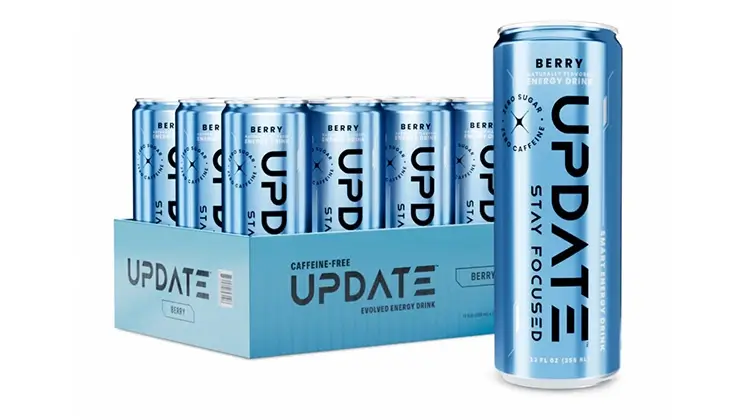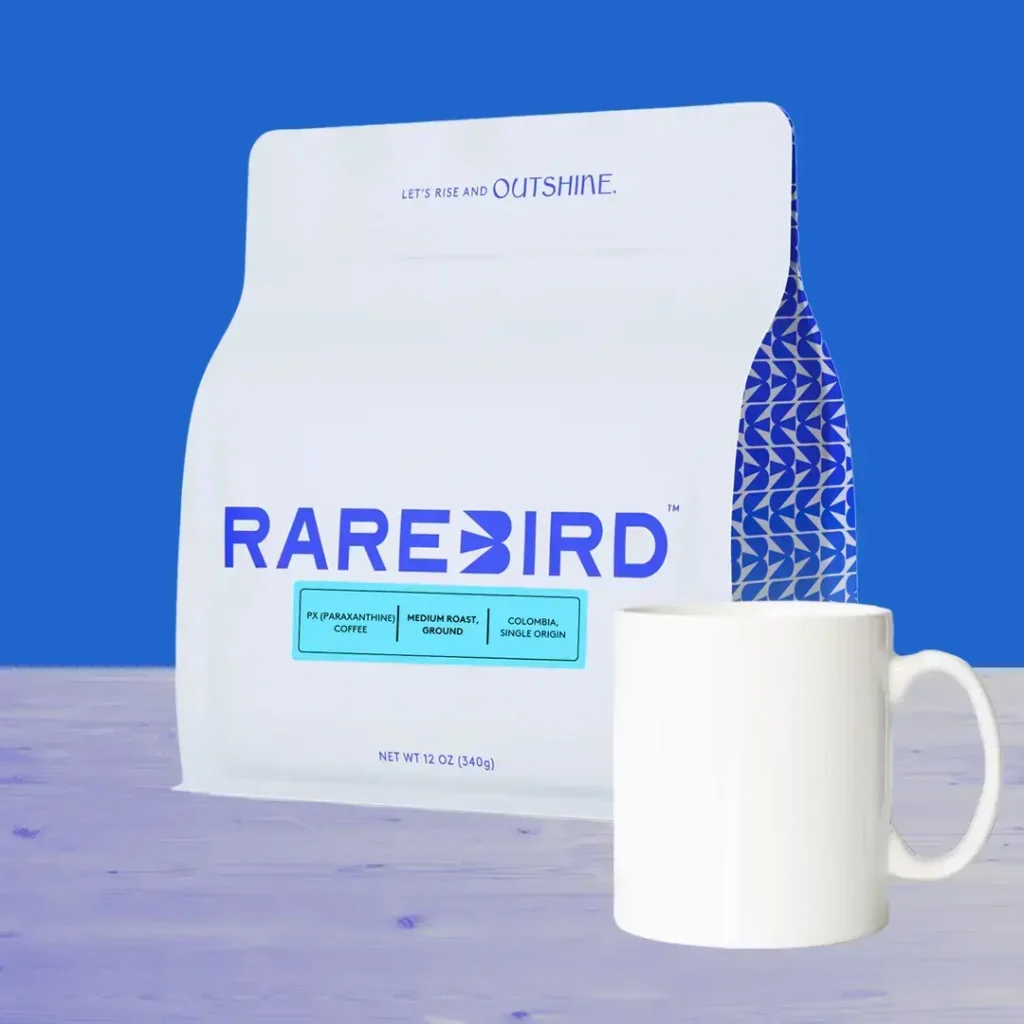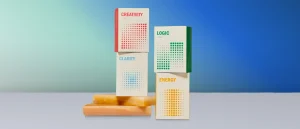Caffeine Make You Jittery? You May Want to Try Paraxanthine
Fast Facts
- Paraxanthine can stand in as a caffeine alternative
- Px has stimulating effects on the body, with little known side effects
- It is largely safe to supplement with paraxanthine
Acup of paraxanthine (Px) may not sound like a classic morning pick-me-up, but if you struggle with caffeine jitters or other issues caused by drinking coffee to wake up, it may be worth your time, as this caffeine metabolite is quickly developing a strong reputation for improving physical well-being.
Px is the primary caffeine metabolite and has been proven to offer most coffee benefits without the usual side effects. If you’re a long-term coffee drinker, or often stack up coffee mugs to get through a deadline, you may have experienced the nausea, restlessness, headaches, or gastrointestinal complaints (1) that can accompany excessive coffee consumption.
Research suggests that Px can offer a way around these reactions, providing fewer symptoms, without compromising on focus and energy benefits. If you’ve been considering an alternative to coffee, paraxanthine—which is already being used in new caffeine-free coffees and energy drinks—could serve as the better brew for you.
About the Expert: Dr. Kelvin Fernandez, MD
Fernandez is a physician and healthcare educator based out of New Jersey. Fernandez’s expertise and interests lie in medical education to future physicians and pulmonary and critical care medicine.
What Is Paraxanthine?
Paraxanthine is a natural dietary ingredient, and is best known as the primary metabolite of caffeine. This means when you take that first big sip of coffee in the morning, about 70 percent of this content is broken into Px (2), with most caffeine processing taking place in the liver.
Simplifying the role of this compound, Dr. Kelvin Fernandez, MD, an internal medicine physician says “[paraxanthine] acts as a potent central nervous system stimulant…similar to caffeine, enhancing alertness and combating fatigue.”
While other caffeine metabolites like theobromine and theophylline exist, Px does most of the heavy lifting for caffeine functions.
What Does Paraxanthine Do?
Brain and body stimulant
Like caffeine, paraxanthine is a central nervous stimulant, meaning it has a direct impact on the brain and spinal cord. Caffeine is a precursor to paraxanthine, so they do not produce distinct effects in the central nervous system. In taking paraxanthine directly, you avoid the other metabolites that are likely responsible for the unwanted side effects of caffeine.
“When comparing paraxanthine with caffeine, although both are psychoactive central nervous system stimulants, paraxanthine tends to cause lesser jitters or feelings of anxiety, offering smoother stimulation”, says Dr. Fernandez
As a stimulant, Px affects neurotransmitters in the brain, specifically adenosine receptors—which play a crucial role in regulating everyday physiological processes like sleep, energy levels, and blood flow.
When introduced to the body, Px binds to Adenosine A1 and A2a receptors, which reduces the release of inhibitory neurotransmitters, which in turn keeps you feeling awake (3).
Improves focus and cognition
Continuing to mirror the effects of coffee, paraxanthine also stands out as an option for enhancing focus and cognition during the day.
This was observed in a study carried out on 12 human volunteers, where each participant was given varying doses of Px ranging from 50mg, 100mg, and 200mg, plus a placebo treatment over the course of seven days (4).
After ingesting these treatments, study participants engaged in cognition tests like the Berg Wisconsin Card Sorting Test, the Go/No-Go test, plus The Sternberg Task Test, where it was found that the daily use of 100mg and 200mg of Paraxanthine can improve cognition, memory, reasoning, plus response time, and can also sustain attention in humans.
Potentially protects against neurologic diseases
Px may have benefits beyond jitterless stimulation. This ingredient may also offer protection against serious degenerative conditions like Alzheimer’s and Parkinson’s disease.
Many epidemiological studies suggest caffeine has neuroprotective effects for a host of common, debilitating neurodegenerative conditions. However, garnering the positive effects of caffeine requires high daily doses that often come with the same unwanted side effects you’re likely trying to avoid with Px (5). Because Px involves fewer side effects, the substance has stoked interest among researchers trying to understand if it has the same positive effects of caffeine, and why.
At least one laboratory study found Px to prevent neuronal cell death better than caffeine through interactions with specialized receptors involved in calcium regulation in neurons (6). A significant body of literature supports the key role calcium plays in the brain in health states, such as memory formation, and in dysregulation of calcium signalling in neurodegenerative disease such as Alzheimer’s Disease (5). Much more research in humans is needed to definitively say Px is neuroprotective, but given its excellent safety profile the potential benefits of Px supplementation are promising.

Should You Supplement Paraxanthine?
For its many benefits, paraxanthine provides stand out qualities that could position it as a suitable alternative to coffee.
Research has recognized this compound for displaying lower toxicity when compared to caffeine, with a reduced risk of producing the anxiety symptoms commonly associated with heavy coffee usage.
Added to previously identified wakefulness properties, plus stronger dopaminergic effects, supplementing paraxanthine in capsule, powder, or other forms could give your body the get- up-and-go it needs on a daily basis.
Paraxanthine’s benefits are particularly important for anyone who may struggle with processing caffeine. This could be individuals with the fast metabolism gene CYL1A2, a not-so-common development which can disrupt caffeine processing (4).
Likewise, anyone with an intermediate or slow metabolism may want to swap out your coffee cup for paraxanthine supplements. Within this group, higher caffeine intake is linked to raised risks of insulin resistance, high blood pressure, and heart attacks.

Paraxanthine Side Effects
For its role as a stimulant, it’s understandable to place paraxanthine under close scrutiny to determine its safety profile. Researchers have taken a similar approach, carrying out investigations to discover if Px is a healthy option for users.
Though it’s early days, most of this research has come to similar conclusions—Px is largely safe for use. For example, within limited human toxicity studies, there has been a noticeable lack of adverse events in Px use (8).
Likewise, animal research reflects similar findings. In a study carried out on rats, the urine results of rats treated with paraxanthine and caffeine reflected that rats on Px displayed no internal or external changes, with no differences in organ weights, urine, hormones, or blood levels (2).
Speaking on paraxanthine use, Dr. Kelvin says: “the safety of Paraxanthine largely depends on individual health conditions and tolerance. It’s vital to consult a healthcare provider before embarking on supplementation to avoid any potential interaction with any other medication you might be on.”
The Bottom Line
Paraxanthine, or Px, works a bit like a a longer lasting, slightly less stimulative caffeine replacement. If you struggle with the side effects of caffeine from coffee, soda, or energy drinks, it’s worth considering paraxanthine as a means to boost energy and focus without the undesirable up-and-down cycles caffeine can cause.











